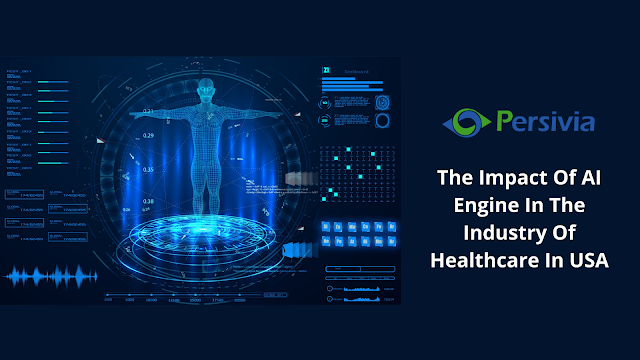AI is already having an influence on the healthcare industry in the United States. From medical and psychiatric management to risk assessment, there is practically unlimited potential to use AI Engines to deliver more accurate, cost-effective, and impactful interventions at the right time in a medical situation. In the future, AI will surely be required to assist clinical and other applications that result in more perceptive, effective treatment and operational settings.
Healthcare solutions
that save money and boost efficiency are becoming increasingly popular, due to
the usage of AI in many of them. According to a recent Frost & Sullivan
study, Artificial Intelligence & Cognitive Computing Systems in Healthcare,
the industry earned $633.8 million in 2014 and is expected to reach $6,662.2
million in 2021 at an annual compound growth rate of 40%.
In the United States, Artificial Intelligence in HealthCare is starting to emerge as a
game-changer in a variety of roles. Let's have a look at some of the
implications of AI Engines in the healthcare industry.
Pharmaceutical Research
& Drug Development
AI-based methodologies
have been created to uncover new possible remedies from big datasets of
research data on patented drugs, which might then be modified to combat crucial
dangers such as Infectious diseases. It has the potential to increase the productivity and success rate of drug synthesis, thus speeding up the process
of bringing new medications to market in response to lethal disease challenges.
Futuristic Radiology
Tools
Recent examples of
enhanced tumor identification on MRIs and CTs demonstrated significant advances
toward novel cancer prevention prospects. Moreover, in the United States, a
manufacturer has already acquired FDA approval for an AI-powered solution to
analyze and decode Cardiac MRI scans.
Identifying Patient
Risks
AI-based technologies
are efficiently speeding diagnostic and therapeutic operations by extracting
stockpiles of structured and unstructured health data. This assists healthcare
providers and healthcare systems in clinical decision-making by offering
real-time, data-driven insights.
Non-Clinical Procedures
AI helps healthcare
organizations in saving time and money by automating organizational activities.
AI-based algorithms enable health plans to identify and reduce incorrect
billing practices to optimize member billing. Likewise, Conversational AI
is helping to improve the customer experience.




No comments:
Post a Comment
Please do not enter any spam link in the comment box